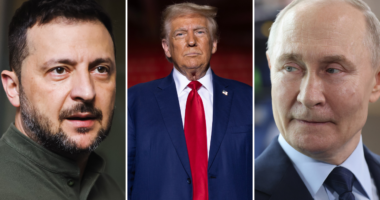
-
Pressure from abroad and at home
President Donald Trump’s announcement about imposing significant tariffs led to market instability. This development put pressure on the Merz Union and the Social Democrats to conclude their coalition talks promptly.
These tariffs could worsen the challenges faced by an economy heavily reliant on exports, which has experienced a decline over the last two years. Thus, fostering economic growth becomes a key priority for the incoming government.
Moreover, growing uncertainties regarding the U.S.’s support for its European partners influenced the coalition’s decision to increase defense spending. Merz emphasized the urgent need for Germany and Europe to enhance their defense capabilities swiftly, asserting that a “whatever it takes” approach should be adopted in the defense sector.
Another factor in the haste to reach an agreement was a decline for the Union in the opinion polls, showing support slipping from its election showing, while the far-right Alternative for Germany, which finished a strong second in February, gained as the political vacuum persisted.
The prospective new coalition brings together what have been post-World War II Germany’s traditional big parties, but the Union’s election-winning performance in February was lackluster and the Social Democrats dropped to their worst postwar showing in a national parliamentary election.
Together, they have 328 seats in the 630-member lower house of parliament, the Bundestag.

















